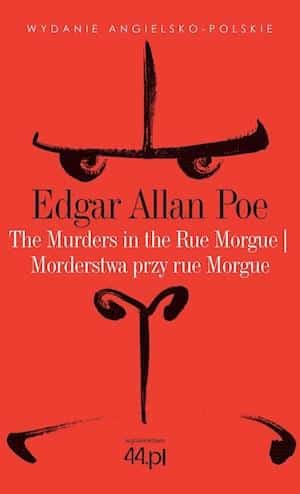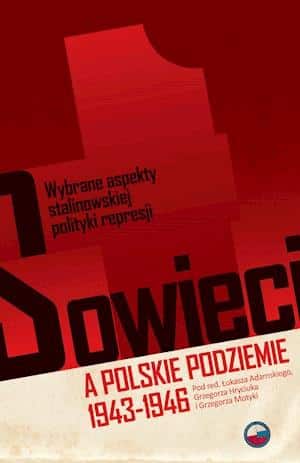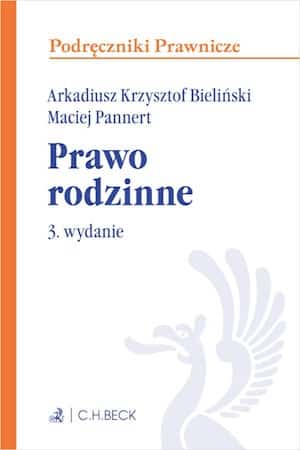
The Murders in the Rue Morgue. Morderstwa przy rue Morgue
- Wydawca:
- Wydawnictwo 44.pl
- Kategoria:
- Języki obce
- Język:
- polski
- ISBN:
- 978-83-63035-53-2
- Rok wydania:
- 2013
- Słowa kluczowe:
- językową
- morderstwa
- morgue
- murders
- nowelista
- pełne
- poego
- poeta
- redaktor
- twórczość
- wersję
- zmienić
- mobi
- kindle
- azw3
- epub
Jeżeli nie widzisz powyżej porównywarki cenowej, oznacza to, że nie posiadamy informacji gdzie można zakupić tę publikację. Znalazłeś błąd w serwisie? Skontaktuj się z nami i przekaż swoje uwagi (zakładka kontakt).
Kilka słów o książce pt. “The Murders in the Rue Morgue. Morderstwa przy rue Morgue”
Tematem opowiadania „The Murders in the Rue Morgue. Morderstwa przy rue Morgue” są zagadkowe morderstwa popełnione na dwóch kobietach.
Edgar Allan Poe – amerykański poeta, nowelista krytyk i redaktor. Jego twórczość, a zwłaszcza pełne grozy i fantastyki opowiadania, to jedno z najważniejszych zjawisk w literaturze światowej.
Seria „Czytamy Poego” zawiera opowiadania w oryginalnej, pełnej wersji angielskiej wraz z polskim tłumaczeniem.
Aby zmienić wersję językową – kliknij w numer akapitu
Polecane książki
Poniżej prezentujemy fragment książki autorstwa Edgar Allan Poe
EdgarAllan PoeThe Murders in the Rue Morgue. Morderstwa przy rue MorgueTłumaczenie z oryginału: Rafał ŚmietanaCzytamy Poego
The Murders in the Rue Morgue. Morderstwa przy rue Morgue
SeriaCzytamy Poego to atrakcyjna pomoc dla uczących się języka angielskiego.
Seria zawiera opowiadania Edgara Allana Poego w oryginalnej, pełnej wersji angielskiej wraz z polskim tłumaczeniem.
Aby zmienić wersję językową – kliknij w numer akapitu.
Wydanie dwujęzyczne zostało przygotowane z myślą o czytelnikach średniozaawansowanych i zaawansowanych. Dzięki wersji polskiej z książki korzystać mogą również początkujący w nauce angielskiego.
Po więcej informacji zapraszamy na www.czytamy.pl orazwww.44.pl
The Murders
in the Rue Morgue
[ 1 ] What
song the Syrens sang, or what name
Achilles assumed when he hid
himself among
women, although puzzling questions are not
beyond all
conjecture.
[ 2 ] Sir Thomas Browne
[ 3 ] The mental features discoursed of as the analytical, are, in themselves, but little susceptible of analysis. We appreciate them only in their effects. We know of them, among other things, that they are always to their possessor, when inordinately possessed, a source of the liveliest enjoyment. As the strong man exults in his physical ability, delighting in such exercises as call his muscles into action, so glories the analyst in that moral activity which disentangles. He derives pleasure from even the most trivial occupations bringing his talents into play. He is fond of enigmas, of conundrums, of hieroglyphics; exhibiting in his solutions of each a degree of acumen which appears to the ordinary apprehension preternatural. His results, brought about by the very soul and essence of method, have, in truth, the whole air of intuition.
[ 4 ] The faculty of re-solution is possibly much invigorated by mathematical study, and
especially by that highest branch of it which, unjustly, and merely on
account of its retrograde operations, has been called, as if
par excellence, analysis. Yet to calculate is not in itself
to analyze. A chess-player, for example, does the one without effort at
the other. It follows that the game of chess, in its effects upon mental
character, is greatly misunderstood.
[ 5 ] I am not now
writing a treatise, but simply prefacing a somewhat peculiar narrative
by observations very much at random; I will, therefore, take occasion
to assert that the higher powers of the reflective intellect are
more decidedly and more usefully tasked by the unostentatious game of
draughts than by all the elaborate frivolity of chess. In this latter,
where the pieces have different and bizarre motions,
with various and variable values, what is only complex is mistaken (a not
unusual error) for what is profound. The attention is
here called powerfully into play. If it flags for an instant, an oversight
is committed, resulting in injury or defeat. The possible moves being not
only manifold but involute, the chances of such oversights are multiplied;
and in nine cases out of ten it is the more concentrative rather than
the more acute player who conquers. In draughts, on the contrary, where
the moves are unique and have but little variation,
the probabilities of inadvertence are diminished, and the mere attention
being left comparatively what advantages are obtained by either party
are obtained by superior acumen.
[ 6 ] To be less
abstract—let us suppose a game of draughts where the pieces are reduced
to four kings, and where, of course, no oversight is to be expected. It
is obvious that here the victory can be decided (the players being at all
equal) only by some recherché movement, the result
of some strong exertion of the intellect. Deprived of ordinary resource,
the analyst throws himself into the spirit of his opponent, identifies
himself therewith, and not unfrequently sees thus, at a glance, the sole
methods (sometimes indeed absurdly simple ones) by which he may seduce
into error or hurry into miscalculation.
[ 7 ] Whist has long
been noted for its influence upon what is termed the calculating
power; and men of the highest order of intellect have been known
to take an apparently unaccountable delight in it, while eschewing
chess as frivolous. Beyond doubt there is nothing of a similar nature
so greatly tasking the faculty of analysis. The best chess-player in
Christendom may be little more than the best player
of chess; but proficiency in whist implies capacity for success in all
these more important undertakings where mind struggles with mind. When
I say proficiency, I mean that perfection in the game which includes
a comprehension of all the sources whence legitimate
advantage may be derived. These are not only manifold but multiform, and
lie frequently among recesses of thought altogether inaccessible to the
ordinary understanding. To observe attentively is to remember distinctly;
and, so far, the concentrative chess-player will do very well at whist;
while the rules of Hoyle (themselves based upon the mere mechanism of
the game) are sufficiently and generally comprehensible. Thus to have
a retentive memory, and to proceed by “the book,” are points commonly
regarded as the sum total of good playing. But it is in matters beyond the
limits of mere rule that the skill of the analyst is evinced. He makes,
in silence, a host of observations and inferences. So, perhaps, do his
companions; and the difference in the extent of the information obtained,
lies not so much in the validity of the inference as in the quality of the
observation. The necessary knowledge is that of what
to observe. Our player confines himself not at all; nor, because the
game is the object, does he reject deductions from things external to the
game. He examines the countenance of his partner, comparing it carefully
with that of each of his opponents. He considers the mode of assorting the
cards in each hand; often counting trump by trump, and honor by honor,
through the glances bestowed by their holders upon each. He notes every
variation of face as the play progresses, gathering a fund of thought from
the differences in the expression of certainty, of surprise, of triumph,
or chagrin. From the manner of gathering up a trick he judges whether
the person taking it can make another in the suit. He recognizes what
is played through feint, by the air with which it is thrown upon the
table. A casual or inadvertent word; the accidental dropping or turning
of a card, with the accompanying anxiety or carelessness in regard to
its concealment; the counting of the tricks, with the order of their
arrangement; embarrassment, hesitation, eagerness or trepidation—all
afford, to his apparently intuitive perception, indications of the true
state of affairs. The first two or three rounds having been played, he
is in full possession of the contents of each hand, and thenceforward
puts down his cards with as absolute a precision of purpose as if the
rest of the party had turned outward the faces of their own.
[ 8 ] The analytical
power should not be confounded with simple ingenuity; for while the
analyst is necessarily ingenious, the ingenious man is often remarkably
incapable of analysis. The constructive or combining power, by which
ingenuity is usually manifested, and which the phrenologists (I believe
erroneously) have assigned a separate organ, supposing it a primitive
faculty, has been so frequently seen in those whose intellect bordered
otherwise upon idiocy, as to have attracted general observation among
writers on morals. Between ingenuity and the analytic ability there
exists a difference far greater, indeed, than that between the fancy and
the imagination, but of a character very strictly analogous. It will be
found, in fact, that the ingenious are always fanciful, and the
truly imaginative never otherwise than analytic.
[ 9 ] The narrative which
follows will appear to the reader somewhat in the light of a commentary
upon the propositions just advanced.
[ 10 ] Residing in
Paris during the spring and part of the summer of 18—, I there became
acquainted with a Monsieur C. Auguste Dupin. This young gentleman was
of an excellent—indeed of an illustrious family, but, by a variety
of untoward events, had been reduced to such poverty that the energy of
his character succumbed beneath it, and he ceased to bestir himself in
the world, or to care for the retrieval of his fortunes. By courtesy of
his creditors, there still remained in his possession a small remnant
of his patrimony; and, upon the income arising from this, he managed,
by means of a rigorous economy, to procure the necessaries of life,
without troubling himself about its super uities. Books, indeed, were
his sole luxuries, and in Paris these are easily obtained.
[ 11 ] Our first meeting
was at an obscure library in the Rue Montmartre, where the accident of our
both being in search of the same very rare and very remarkable volume,
brought us into closer communion. We saw each other again and again.
I was deeply interested in the little family history which he detailed to
me with all that candor which a Frenchman indulges whenever mere self
is the theme. I was astonished, too, at the vast extent of his reading;
and, above all, I felt my soul enkindled within me by the wild fervor,
and the vivid freshness of his imagination. Seeking in Paris the objects
I then sought, I felt that the society of such a man would be to me
a treasure beyond price; and this feeling I frankly confided to him. It
was at length arranged that we should live together during my stay in the
city; and as my worldly circumstances were somewhat less embarrassed than
his own, I was permitted to be at the expense of renting, and furnishing
in a style which suited the rather fantastic gloom of our common temper,
a time-eaten and grotesque mansion, long deserted through superstitions
into which we did not inquire, and tottering to its fall in a retired
and desolate portion of the Faubourg St. Germain.
[ 12 ] Had the routine
of our life at this place been known to the world, we should have
been regarded as madmen—although, perhaps, as madmen of a harmless
nature. Our seclusion was perfect. We admitted no visitors. Indeed the
locality of our retirement had been carefully kept a secret from my own
former associates; and it had been many years since Dupin had ceased to
know or be known in Paris. We existed within ourselves alone.
[ 13 ] It was a freak of
fancy in my friend (for what else shall I call it?) to be enamored of the
night for her own sake; and into this bizarrerie,
as into all his others, I quietly fell; giving myself up to his wild whims
with a perfect abandon. The sable divinity would not
herself dwell with us always; but we could counterfeit her presence. At
the first dawn of the morning we closed all the massy shutters of our
old building; lighted a couple of tapers which, strongly perfumed,
threw out only the ghastliest and feeblest of rays. By the aid of these
we then busied our souls in dreams—reading, writing, or conversing,
until warned by the clock of the advent of the true Darkness. Then we
sallied forth into the streets, arm and arm, continuing the topics of
the day, or roaming far and wide until a late hour, seeking, amid the
wild lights and shadows of the populous city, that infinity of mental
excitement which quiet observation can afford.
[ 14 ] At such times
I could not help remarking and admiring (although from his rich ideality
I had been prepared to expect it) a peculiar analytic ability in Dupin. He
seemed, too, to take an eager delight in its exercise—if not exactly
in its display—and did not hesitate to confess the pleasure thus
derived. He boasted to me, with a low chuckling laugh, that most men,
in respect to himself, wore windows in their bosoms, and was wont to
follow up such assertions by direct and very startling proofs of his
intimate knowledge of my own. His manner at these moments was frigid
and abstract; his eyes were vacant in expression; while his voice,
usually a rich tenor, rose into a treble which would have sounded
petulantly but for the deliberateness and entire distinctness of the
enunciation. Observing him in these moods, I often dwelt meditatively
upon the old philosophy of the Bi-Part Soul, and amused myself with the
fancy of a double Dupin—the creative and the resolvent.
[ 15 ] Let





